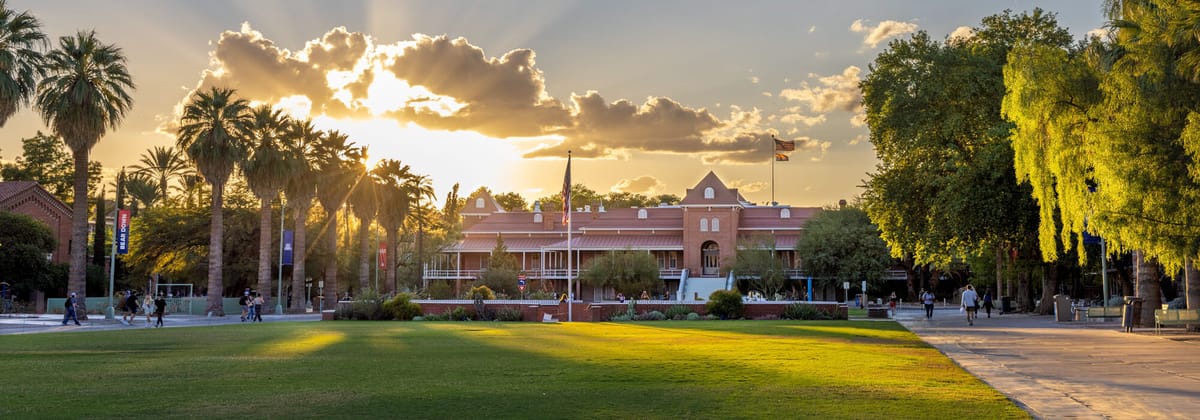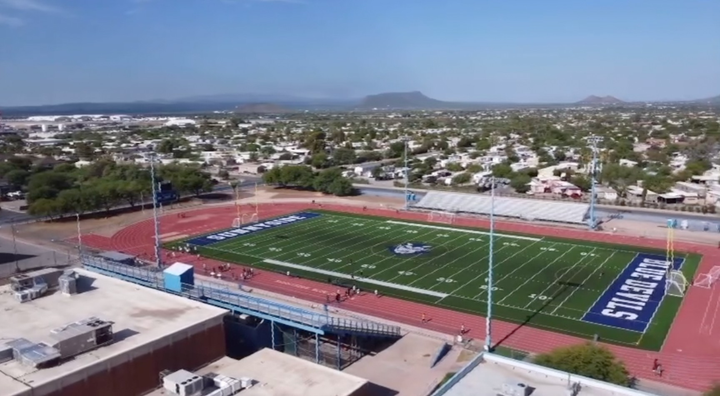Young voters wield the power this election – should they choose to use it
Millennials and Generation Z will make up 44% of American voters this year, according to Rock the Vote, marking a notable shift in electoral dynamics as younger generations bring fresh perspectives and priorities.

With the election rapidly approaching, a lot of attention has shifted to young voters, who are preparing to wield their political influence like never before.
The Washington Post reported last week that young voters will play a “potentially decisive” role in November’s election, and right here in Tucson, many are determined to reshape the electoral landscape while they also try to navigate a complex and often hostile political environment.
Millennials and Generation Z will make up 44% of American voters this year, according to Rock the Vote, marking a notable shift in electoral dynamics as younger generations bring fresh perspectives and priorities.
But like many older voters, today’s youth are also facing many hardships and are looking forward to exercising their right to vote, and hopefully, affect change.
Miranda Lopez, a voter registration volunteer at the University of Arizona, has plenty of firsthand experience engaging students.
While working at her booth at the UA, she engages in political discussions regardless of party affiliation, but she has also faced hostility.
On one particularly breezy day, her signs blew away, and a passerby stomped on them and offered up some not-so-kind words.
“Oh, sorry,” the person said. “Well, if you're in politics, then I'm not sorry, because you deserve it.”
Political stubbornness transcends age, often leading to hostility and division in discourse. Andrew Alberts, another UA student, said he fears for his mother and sister’s reproductive rights, should former President Donald Trump be reelected.
Despite the risk to his mother and sister’s freedoms, Alberts’ family is Republican-leaning, and while he often doesn’t agree with them, he still loves them despite the tension.
“I get the most hostility from my grandparents,” he said. “They criticize me for my views, though I don’t criticize them for theirs.”
UA student and voter registration volunteer Valeria Calera said most of her interactions have been constructive.
“I’ve met people with different opinions, but I’ve never been shamed for mine,” she said.
Fellow volunteer Maya Turner agreed, noting that while some friends might “look at you differently,” shaming isn’t a major issue.
And despite generational differences, it sometimes seems there’s more in common between these groups than expected.
Older voters may bring more experience and knowledge from past elections, which can provide valuable insights. And bridging the gap through open dialogue could lead to more productive and respectful conversations between generations.
Social media has also transformed how political candidates engage with younger voters. Instead of solely focusing on policy, candidates now use cultural influencers to build support. In 2020, former Trump invited rapper Lil Pump to speak at a rally.
And earlier this year, Vice President Kamala Harris featured Megan Thee Stallion at her Atlanta rally.
Celebrity endorsements have become a prominent campaign strategy, often overshadowing meaningful discussions on policy. And while they’re nothing new, it seems as if today's generation is looking beyond who their favorite stars are supporting and standing by their personal values, regardless of outside influence.
Alberts said his vote is determined by what he believes is right, rather than celebrity influence, reflecting a common sentiment among young voters.
While celebrity endorsements don’t necessarily sway a person’s political decisions, social media posts from high-profile figures like Taylor Swift and Billie Eilish have helped boost voter registration amongst younger generations.
One of the most contentious topics among young voters is Project 2025, with voter registration volunteer Lopez saying that “it’s longer than the longest Harry Potter book.”
Another major concern for some UA students is the difficulty of registering to vote, with Calera and other volunteers advocating for more accessible voting centers, including one on the UA campus.
“The voting center is outside of campus, which isn’t convenient for students,” she explains.
Turner also emphasized the importance of young voters getting involved in local and state elections, saying these are often overlooked, but have the most direct impact on policies that affect them.
“I just don’t think there’s enough education around voting,” she said. “(There should be) a small course that people are required to take (in high school,) like health class.
Angelina Maynes is a journalism major at the University of Arizona and reporter with Tucson Spotlight. Contact her at angelinamaynes@arizona.edu.



